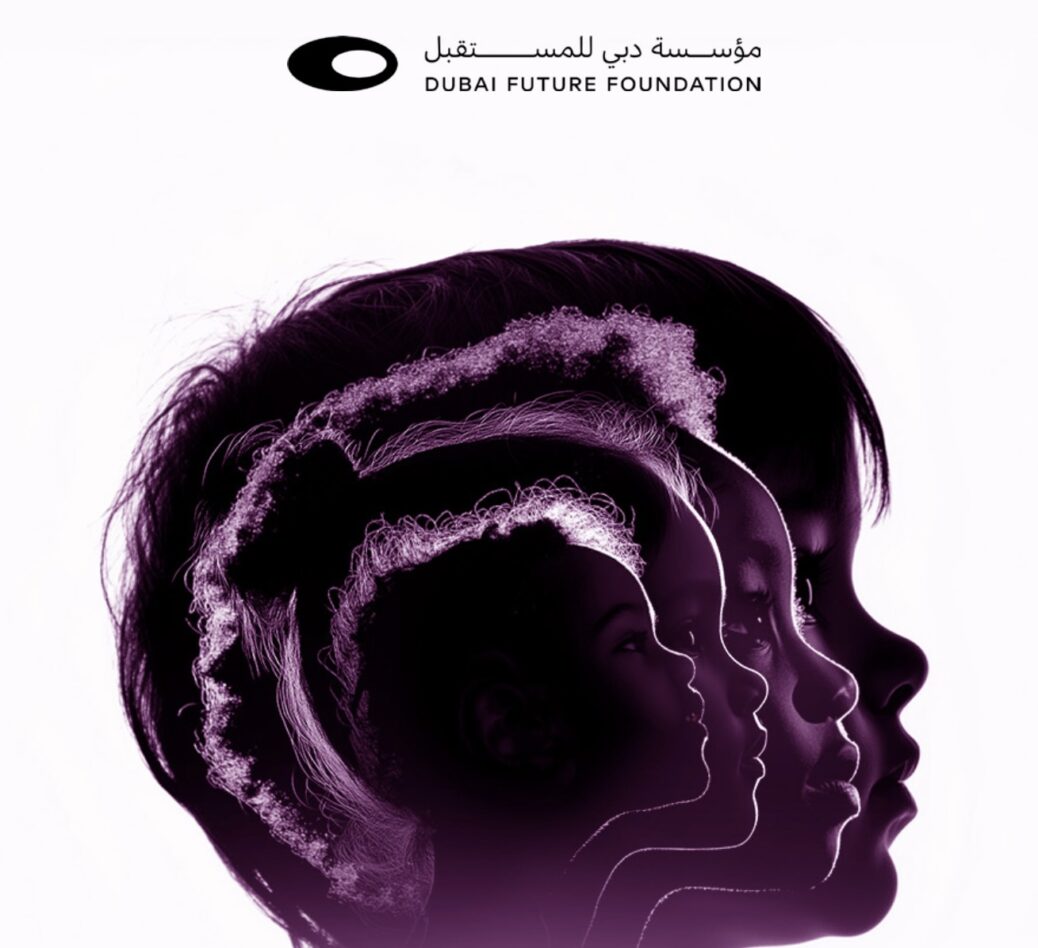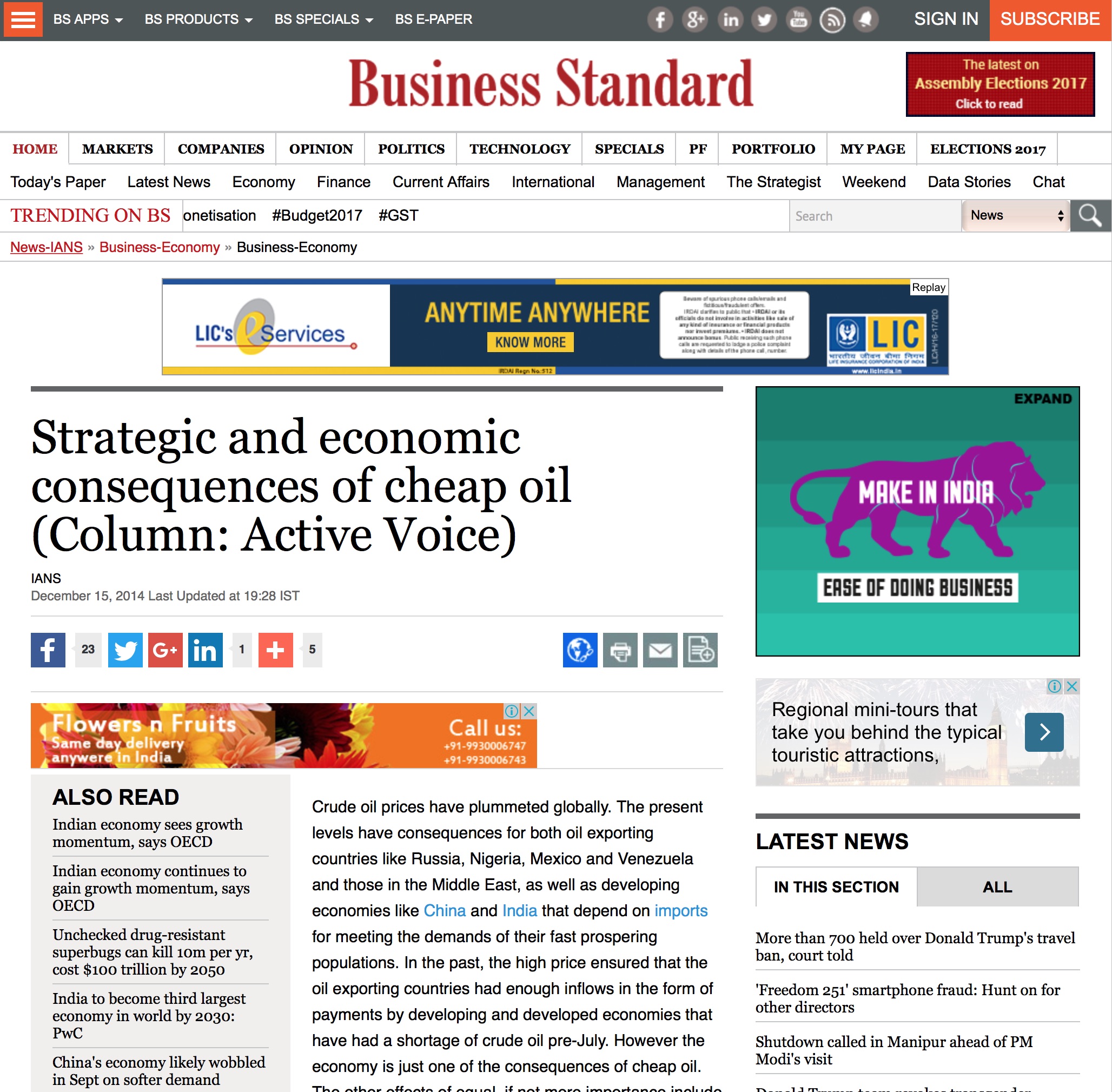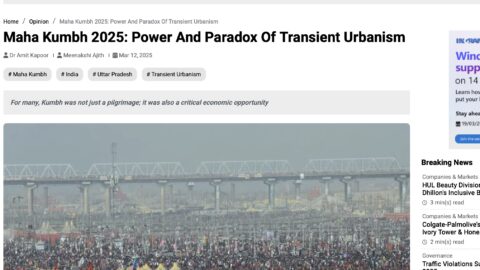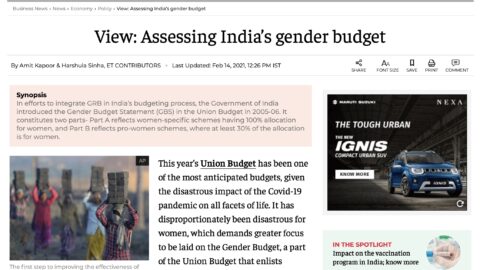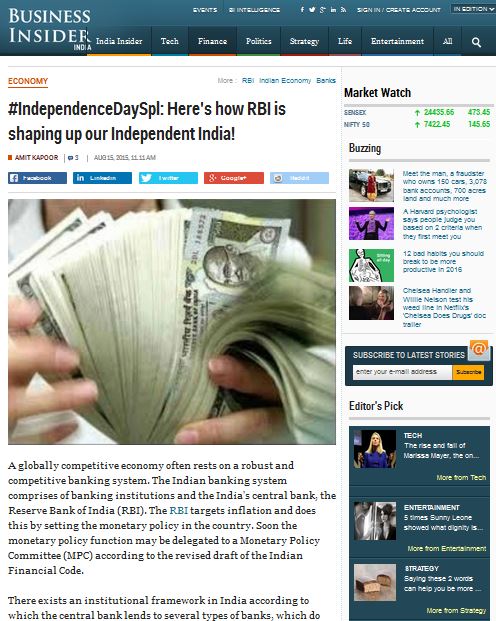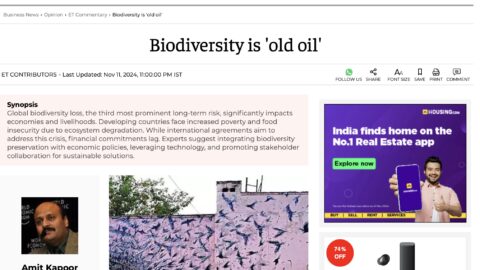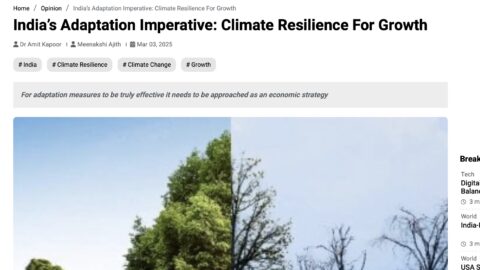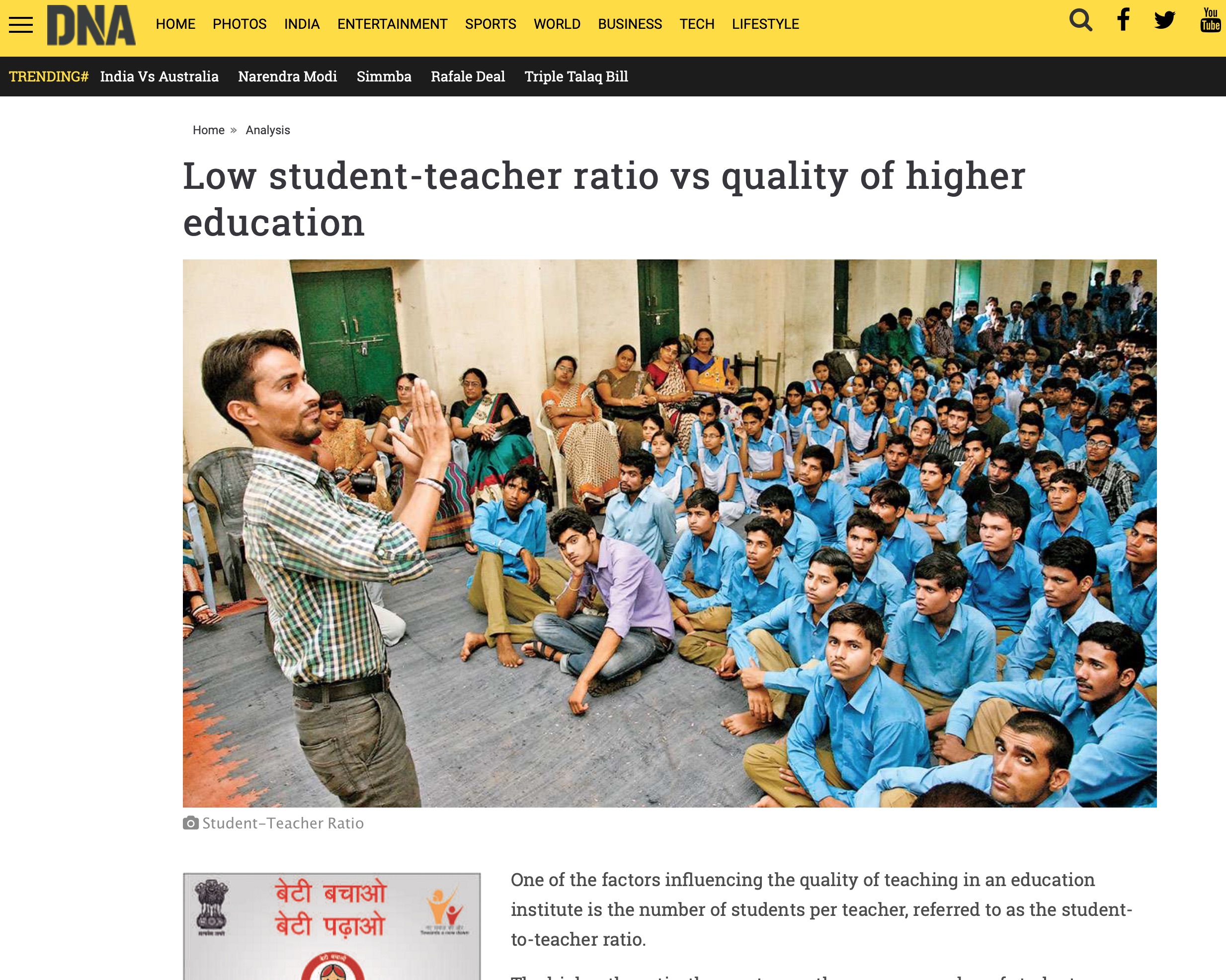By Amit Kapoor
As we navigate the complexities of the 21st century, our world grapples with an unprecedented array of challenges that were scarcely imaginable when John Maynard Keynes developed the modern definition of gross domestic product (GDP) during World War II. Today, we face a landscape marred by the lingering effects of a global pandemic, geopolitical conflicts in Ukraine and the Middle East (Israel and Palestine), the disruptive potential of AI, a slowdown in globalisation, accelerating climate change, and the looming failure to meet SDG 2030 targets. Add to this the spectre of job losses, rising inflation, and an alarming increase in inequality between developed and developing economies, and it becomes clear that our traditional measures of economic success are woefully inadequate in capturing the true state of our world. In this context, the limitations of GDP as a measure of national progress have become glaringly apparent. The world is awakening to the realisation that true development extends far beyond economic output, encompassing social well-being, environmental sustainability, and quality of life. This shift in perspective presents not just a challenge but a global opportunity to redefine progress and chart a course towards genuinely sustainable development.
Why is going beyond GDP a global opportunity? The answer lies in our world’s interconnectedness and the complexity of the challenges we face. The issues confronting us—from climate change and social inequality to geopolitical tensions and technological disruption—transcend national borders and economic indicators. By adopting a more comprehensive approach to measuring progress, we create a shared language for global cooperation and a framework for addressing these universal issues.
The essential enablers of this new paradigm for growth form a broad ambition for the future, embodied in four key dimensions that we call the 4 S’s:
- Social: A coherent set of outcome goals, capturing the quality of life across society. This dimension guarantees a balance between economic growth and social progress, tackling issues such as healthcare, education, and social cohesion.
- Shared Prosperity: economic opportunities that are shared across society. This aspect focuses on reducing inequality and ensuring that the benefits of growth reach all segments of the population.
- Solid: economic structures that are resilient to shocks. This dimension is crucial in an era of global uncertainties, from pandemics to geopolitical tensions, to ensure that economies can withstand and recover from crises.
- Sustainable: economic activities that are carbon neutral and aligned with environmental sustainability. This aspect addresses the urgent need to combat climate change and preserve our planet for future generations.
This multi-faceted approach provides a more accurate picture of a nation’s overall health and progress in the face of modern challenges. For instance, India’s development of the Ease of Living Index and the Social Progress Index for States and Districts aligns with this holistic view. These initiatives acknowledge the inherent connection between long-term economic growth, social progress, shared prosperity, economic resilience, and environmental sustainability.
The global shift beyond GDP is not a distant aspiration; it had already begun decades ago with the introduction of the Human Development Index (HDI) by the United Nations Development Programme in 1990. The development of the Social Progress Index in 2013 further accelerated this initial conversation by providing a comprehensive measure of a country’s social and environmental performance, independent of economic factors. These early initiatives laid the groundwork for more recent developments, which have gained momentum due to the stark realities of our current global situation. Countries like Bhutan, with its Gross National Happiness Index, and New Zealand, with its Wellbeing Budget, are now pioneering approaches that align closely with one 4 S dimension. The HDI and Global Social Progress Index paved the way for these more holistic national frameworks, demonstrating the feasibility and importance of measuring progress beyond economic indicators.
For youth and future generations, this shift represents a commitment to leaving a better world amidst daunting challenges. It means policies that prioritise not just economic growth but also social progress, shared prosperity, economic resilience, and environmental sustainability. This approach also addresses critical issues that GDP often overlooks, such as unpaid domestic and care work, promoting gender equality, and adapting to changing work paradigms in the AI era.
As we stand at this critical juncture, the shift beyond GDP is imperative for our collective future. The world today is unrecognisable from Keynes’ era, when GDP was developed. We face challenges that he couldn’t have foreseen, from climate change to AI disruption. Our measures of progress must evolve accordingly. This new paradigm challenges us to judge a nation’s success not just by its economic size but also by its ability to provide for all citizens, maintain healthy ecosystems, and contribute to global sustainability. By embracing holistic measures of societal well-being, we can chart a course towards a more balanced, inclusive, and sustainable world. In this rapidly changing landscape, the time to redefine progress is now. Our future depends on it.
The piece was published with the Dubai Future Report “The Global 50” – Special Edition on Youth and Future Generations.
The complete report can be looked here.

